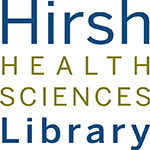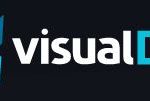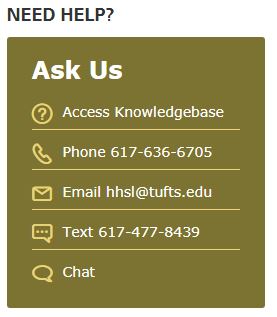
https://www.visualdx.com/
The Hirsh Health Sciences Library is pleased to announce that you will soon have access to VisualDx, a diagnostic clinical decision support system designed to enhance diagnostic accuracy and aid therapeutic decisions. VisualDx is a database that uses images of common and rare medical conditions to assist with diagnosis. It can be used to build patient-specific differentials and conduct searches by disease, medication, or travel. But perhaps the most exciting feature is the ability to filter dermatological images by skin pigmentation to see how lesions present on different skin types and compare them side by side.
The database includes more than 3,000 diagnoses and over 41,000 images, to aid in diagnosing infectious, immunologic, metabolic, nutritional, psychiatric, and genetic diseases.
The enhanced visualization capabilities of this tool support Tufts’ goals to bring you resources that promote diversity, equity, and inclusion in education and patient care.
VisualDX and #ProjectIMPACT:
You now have full electronic access to LWW Health Library’s Board Review Series!
The Board Review Series is a database that covers material in the primary basic sciences such as gross anatomy, embryology, neuroscience, and more that are addressed on the United States Medical Licensing Examination (USMLE) Step 1 exams. Each concise, yet comprehensive book takes an outline approach, and contains review questions, clinical information, full-color illustrations, photographs, and tables.
Working on a research paper that needs some Boston specific facts and figures? Looking for a place to peruse the City of Boston’s open data? Check out Analyze Boston to view public facts, figures and maps displaying data that connects the city with it’s inhabitants. Browse data sets on food establishment inspections, police reports, electrical use, moving permits and more.
Keep in mind, this website’s searching abilities are not as strong as some of the other databases you’re used to using. For example, if you wanted information about all of the cases of graffiti being reported you wouldn’t be able to find a data set by search graffiti. You would have to know that the 311 data set contains this type of information, luckily a quick google search of “graffiti boston removal” would help you learn which organization’s data set to look for. Once you’re within a data set, you can limit the information so that you’re only seeing the information you’re interested in.
Check out Analyze Boston to browse the data and to learn more.
The National Center for Biotechnology Information collects and curates thousands of protein sequences and related information, so it’s a great place to start if you need information fast.
Step 1: Go to the library homepage at www.library.tufts.edu/hhsl and click the PubMed@Tufts link.
Step 2: In the search box type: “ProteinName AND OrganismName[organism]” and select Protein from the dropdown menu on the left. Click search.
Step 3: Filter by RefSeq on the top right. (These are all standardized and approved protein sequences.)
Step 4: Click on a record of interest.
Step 5: Explore! The links in the right column allow you to find information about the coding gene, see conserved domains, find species with homologous genes, view 3D protein structures, view pathways that contain the protein (often from KEGG), and much more!
Have questions or need help? Contact katie.houk@tufts.edu to schedule a consultation!
Recent Posts
Categories
- 4th Floor Tabling (3)
- affiliation (4)
- Announcements (353)
- Book/Resource Reviews (117)
- Hours (131)
- Interviews (4)
- New Titles & Resources (114)
- News & Events (266)
- Open Workshops (48)
- Outside News & Events (66)
- resources (18)
- throwback thursday (5)
- Tips & Tricks (135)
- Uncategorized (148)
Tags
4th floor affiliation books Boston circulation crafts electronic resource electronic resources events exams extended hours food fun fun lab funlab graduation HHSL Hirsh Health Sciences Library holiday holiday hours holidays hours leisure reading library fun lab library service desk library staff new books open access open access week open workshop Open Workshops reserves resources staff statistics summer survey tea Thanksgiving therapy dogs Tufts Hirsh Health Sciences Library website welcome! writing consultants writing helpFollow us @TuftsHHSL!
Twitter feed is not available at the moment.









